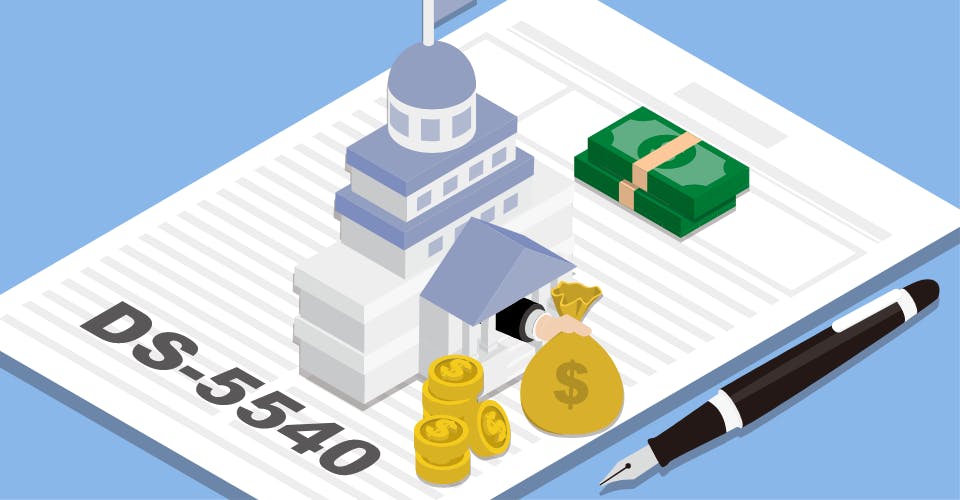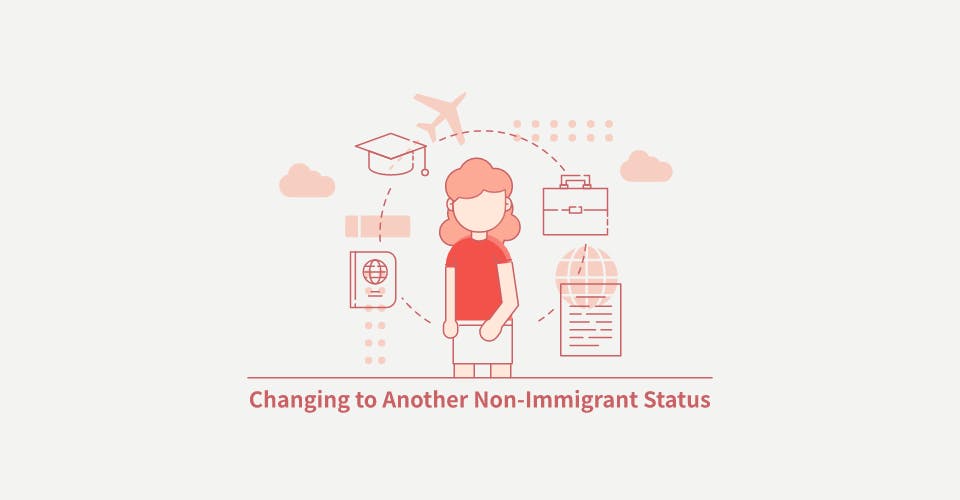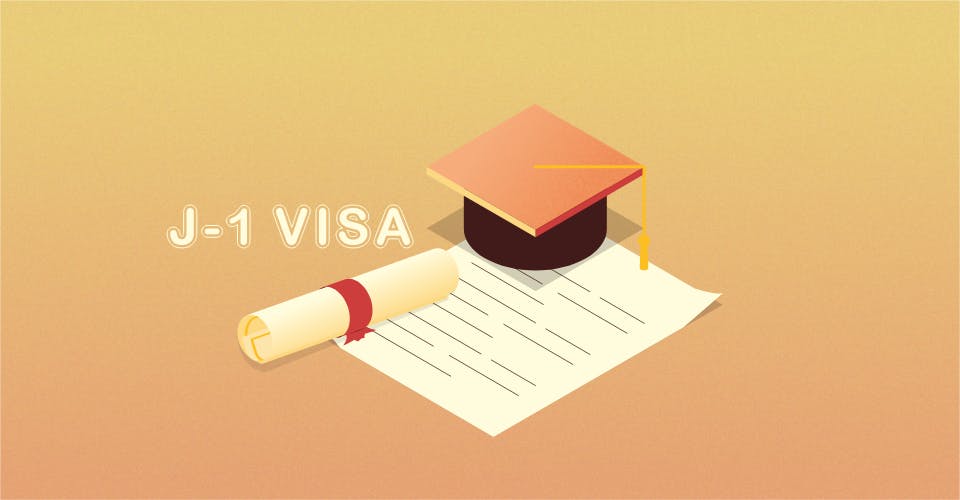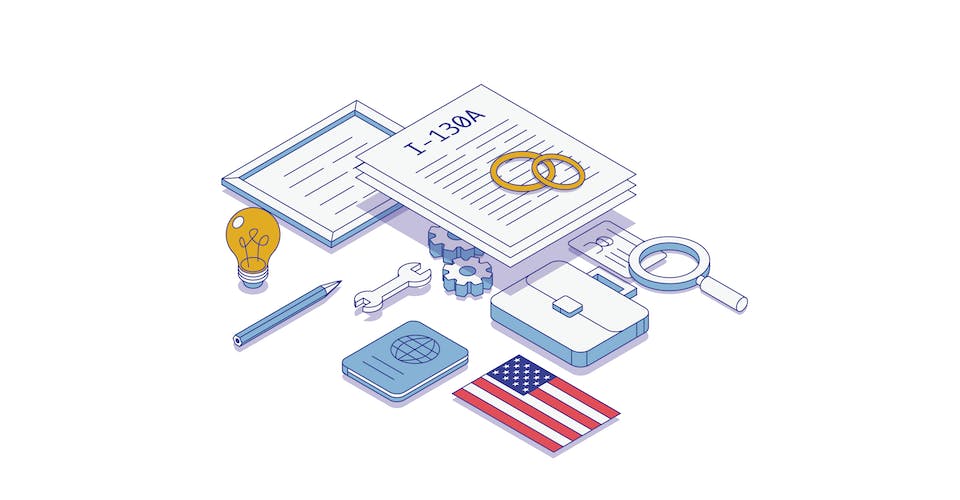The DS-5540 is the consular processing version of a Public Charge Questionnaire. The USCIS has its own I-944 Declaration of Self Sufficiency for domestic applicants filing their I-485, which is used for a similar purpose. Still, the DS-5540 is used to determine if the applicant in question is likely to become a public charge when they immigrate to the United States, based on their financial situation, but also based on other categories such as educational/skills status and household size.
Background
The federal ruling on public charge was reinstated under the Trump Administration, and according to the Immigration and Nationality Act (INA), under section 212(a), public charge prescribes how it determines whether an alien is inadmissible, or admissible to the United States. Public charge revolves around whether or not applicants will need public benefits (how many benefits and how often), paid for by the U.S. government, and therefore taxpayer money.
Due to Covid-19, an applicant who is seeking treatment due to symptoms that resemble the coronavirus, i.e. fever, cough, shortness of breath, will not be negatively affected because of such condition when it comes to any future public charge analysis.
In addition, for purposes of a public charge inadmissibility determination, the USCIS and the State Department considers the receipt of public benefits as only one consideration among a number of factors and considerations in the totality of the alien’s circumstances over a period of time with no single factor being the primary means for finding some inadmissible.
Who needs to fill out a DS-5540
The following visa immigrant applicants will be required to fill out the DS-5540:
1. The principal applicant for all employment based visa categories.
2. The principal applicant for anyone seeking for a green card via consular processing
3. All immediate relative visa applicants, except for children dependents.
4. The principal applicant for the diversity visa lottery.
5. Any non-immigrant visa applicant, if instructed to do so by a consular officer.
In addition, there are some categories of immigrants who will not need to fill out the Public Charge Questionnaire. These include immigrants applying for a green card on humanitarian grounds, or those who are applying as crime victims (VAWA self-petitioners).
There is currently no filing fee for DS-5540.
Steps for Completing this Form
Part 1 asks the applicant for their name, date of birth, and if they have ever travelled to the United States before.
Part 2 asks applicants if they currently have health insurance in the United States. This is basically impossible as immigrants without legal status in the U.S. will most likely not have even applied for U.S. based private health insurance yet. Additionally, Part 2 asks applicants if they will be covered by health insurance within 30 days of their entry in the United States, and if so, to identify the plan they will be getting and the start date.
Note: The health insurance marketplace in the U.S. is complicated, and can take some time to become familiar with. Many individuals will end up deciding on a plan based on the deductible it offers, or based on monthly payment rates. For some applicants, it might be best to answer “No” to this question if they are not familiar with any of the carriers in the U.S. marketplace, or if they believe it will take longer than one month to find and become enrolled in a plan. Additionally, there are open enrollment periods in the U.S., and if the visa applicant will be coming to the United States when it is not open enrollment, they may have difficulty enrolling at that time.
Part 3 is a table that needs to be completed by the applicant referring to their Household size. You need to include yourself in this table. Under Relationship to Self, write “Self”. If you will only be living with your spouse, list their name, age, relationship to you (principal applicant), current job, legal status, and whether the are on Active Duty Status in the U.S. military.
For more information on how to complete this section, refer to the following for who is included in your household:
- Your children (dependents) if they will be living with you in the United States
- Any child who is not living with you in the United States but still receives at least 50 percent of their financial support from you (principal applicant)
- Any individual who receives at least 50 percent of their financial support from you
- Any person who also provides you with at least 50 percent of your financial support (most likely your spouse)
Part 4 is titled “Assets, Resources, and Financial Status” and is arguably the most important part of the form. The first question in this section asks applicants to list all of the U.S. federal tax returns they have filed within the last three years. If they have never worked in the United States before this section cannot apply to them. However applicants are asked what their current salary is, in U.S. dollars. Make sure to convert before filling in.
Question 8B should refer to non-immigrant visa applicants (i.e. H1-B applicants). They should put the exact name of the company that filed an employment petition on their behalf, and the adjusted gross income (before taxes) as the annual income.
For question 8C, some applicants might have other sources of income besides a primary occupation. They should list the type of income they are receiving (for example rent, stock, foreign pension), and how often they receive the payment, and for each incremental payment what that value is in U.S. dollars.
Questions 9 and 10 ask applicants to list their assets and liabilities, respectively. Examples of assets are the following:
- Cash in the bank
- Investments
- Real-estate (land or property owned)
- Car (depreciating asset)
Liabilities on the other hand are financial obligations an individual must meet. For example child support is a liability if you need to pay it every month. The same goes for bank or mortgage debt or a loan that is functioning on a repayment schedule.
Questions 11 through 13 deal with any public benefit or form of assistance that has been received by the applicant on or after October 15th, 2019. If the applicant has never been to the United States, they could have never qualified for U.S. based government benefits. These include:
- Supplemental Nutrition Assistance Program (SNAP)
- Supplemental Security Income (SSI)
- Temporary Assistance for Needy Families (TANF)
- Subsidized housing
- Medicaid
- Project Based Rental Assistance
- Any federal, state, or local cash assistance program for income maintenance
Finally, Part 5 refers to the applicants education and skills. In this section, applicants will state if they have completed high school, and if so if they have received any other advanced degrees (include university and post-graduate studies). In addition, there are 3 blank spaces for applicants to list certificates and licenses they hold and they date they obtained them. Online courses that grant certificates absolutely count in this category.
After completing these parts, applicants need to give the personal information of any preparer and/or translator that might have helped them complete this form. Applicants will then sign and date this form under Part 9.














